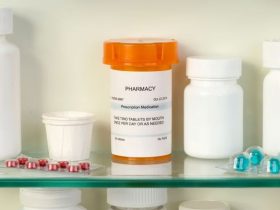LRRC-QoL consisted of nine multi-item scales and three single items; has convergent validity with other measures
By Elana Gotkine HealthDay Reporter
FRIDAY, June 9, 2023 (HealthDay News) — A new locally recurrent rectal cancer (LRRC) quality of life (QoL) measure is a valid patient-reported outcome measure (PROM), according to a study published in the May issue of eClinicalMedicine.
Deena P. Harji, M.B.B.S., Ph.D., from the University of Leeds in the United Kingdom, and colleagues developed a disease-specific, psychometrically robust, and validated PROM for use in LRRC. A total of 117 adults in the United Kingdom and Australia with an existing or previously treated LRRC within the last two years completed the proposed LRRC-QoL, European Organisation for Research and Treatment of Cancer Quality of Life-C29 (EORTC QLQ-CR29), and Functional Assessment of Cancer Therapy-Colorectal (FACT-C) questionnaires. Nine multi-item scales (health care services, psychological impact, pain, urostomy-related symptoms, lower limb symptoms, stoma, sexual function, sexual interest, and urinary symptoms) and three single items were included in the LRRC-QoL measure.
The researchers found that overall reliability was supported by Cronbach’s Alpha and Intraclass correlation values of >0.7 across the majority of scales. Validity was convergent between the LRRC-QoL pain scale and FACT-C Physical Well Being scale; LRRC-QoL psychological impact scale and EORTC QLQ-CR29 Body Image scale and the FACT-C Emotional Well-Being scale; and LRRC-QoL urinary symptoms scale and EORTC QLQ-CR29 Urinary Frequency scale. For gender, disease location, treatment intent, and recurrent disease, known-groups validity was demonstrated.
“The LRRC-QoL has the potential to transform outcome assessment in locally recurrent rectal cancer. In clinical practice, the LRRC-QoL will be able to quantify patient symptoms, experience, and overall satisfaction,” a coauthor said in a statement. “This will lead to the disclosure and identification of potential issues not routinely reported and will aid the early detection and subsequent monitoring of symptoms.”
Copyright © 2023 HealthDay. All rights reserved.







